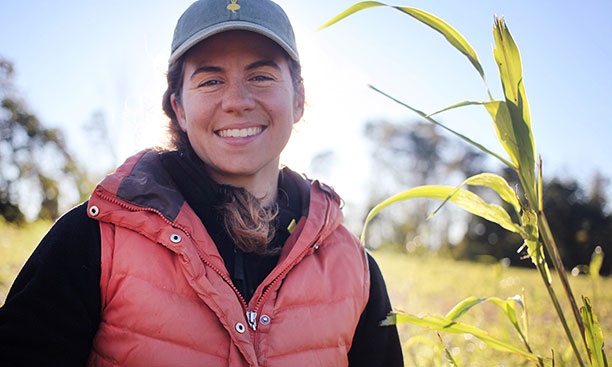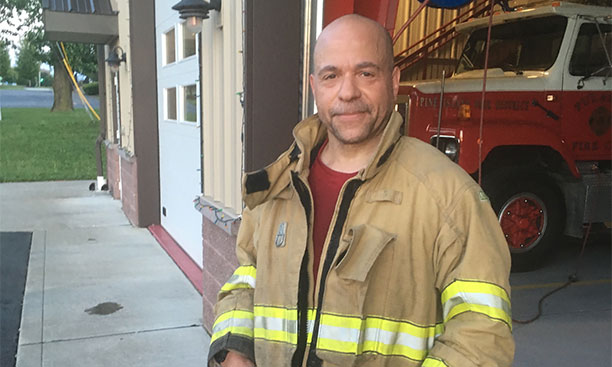Sarah Simon ’13 and Hans Hageman ’80 Share Mission at Food Nonprofits
The feeling was mutual. Hageman, a baby boomer who grew up and has spent much of his life in Harlem, said, “For me, it’s very interesting to be collaborating with someone whose Princeton experience is more recent. She reflected about how her experience at Princeton played a seminal role [in her career choices] — and [that] has caused me to reflect on what has brought me to this place.”
Both head organizations dedicated to food justice and education. Hudson Valley Seed educates early elementary school children in school gardens with curriculum-integrated lessons related to healthy eating, the environment, math, science and economics. Common Ground Farm educates upper elementary school and middle school children and brings kids of all ages to the farm for field trips. CGF also distributes produce to food pantries, soup kitchens, and schools, and sells to U-Pick customers, local restaurants, and at two local farmers markets. In addition, they partner with a local youth program to bring fresh food to low-income neighborhoods via mobile farmers markets — buses painted with vegetables, containing solar-powered coolers and a window on the side for dispensing produce like an ice cream truck.
“This is networking — no pun intended — at a very ground level,” Hageman said with a laugh. For both Princeton alums, an important goal of their work is to empower youth and minorities.
“There’s plenty of food but unfortunately, it’s fast food of low quality that constitutes a food swamp, which is not necessarily part of an evil plan, but just not well-planned,” he said of places like Newburgh, N.Y. (one of the communities HVS and CGF serve), a small city on the Hudson River, about 70 miles north of New York City, comprised of mostly low-income neighborhoods. Newburgh is about 52 percent Hispanic and 25 percent African-American, according to city-data.com. Hageman believes education is the key to change for such communities.
“What ends up happening in a lot of schools, independent or public, is that you’re provided a whole lot of information around the threats to climate but particularly children in under-resourced communities, or children of color, are not told how you have agency in counteracting these threats,” Hageman said. “So part of the program is teaching kids [about] their connection to nature and that when they work with nature and work with each other, they can in fact produce food that nourishes them, and they can be part of the food as medicine or farm to table movements.”
In addition to teaching kids how to garden and encouraging them to try new kinds of food, HVS also provides students with entrepreneurial opportunities with “crop shops,” from which they sell the vegetables from school gardens.
“Vegetable gardening crosses over to health, economics, and science. It enhances their understanding of their role in the food system. First they learn where food comes from and then that you have choices in terms of what you put on your plate,” he said.
Simon has been passionate about working the soil since the first time she set foot on Princeton’s campus. During an overnight campus visit as a prospective student, she was hosted by a student who happened to be a manager of Princeton’s student vegetable garden.
“I think staying with her planted a seed in my mind,” Simon said. In fact, Simon followed in her host’s footsteps, becoming a garden manager in her sophomore year.
She said that, surprisingly, her liberal-arts education at Princeton (she was a comparative literature major with certificates in creative writing, dance, and urban studies) prepared her well for running a farm.
“I ask pretty big questions,” Simon said. “Why don’t people have access to fresh food in this area? How do you make viable a farm that’s only selling within 10 miles of farm operations? I took a look at them from a big-picture perspective.”
Simon guided CGF’s transition from a community-supported agriculture model, where customers pay up front for a season’s worth of produce as an investment in the farm, to an organization focused on food justice and education.
“My approach has been to focus more on changing the food system to try to reach people before they have an emergency need for food,” she said.
Hageman notes that despite differences in age and background, it’s clear the two alums share a mission.
“School gardens and school farming can be an incredible touch point for healing the urban/rural divide,” Hageman said.













No responses yet